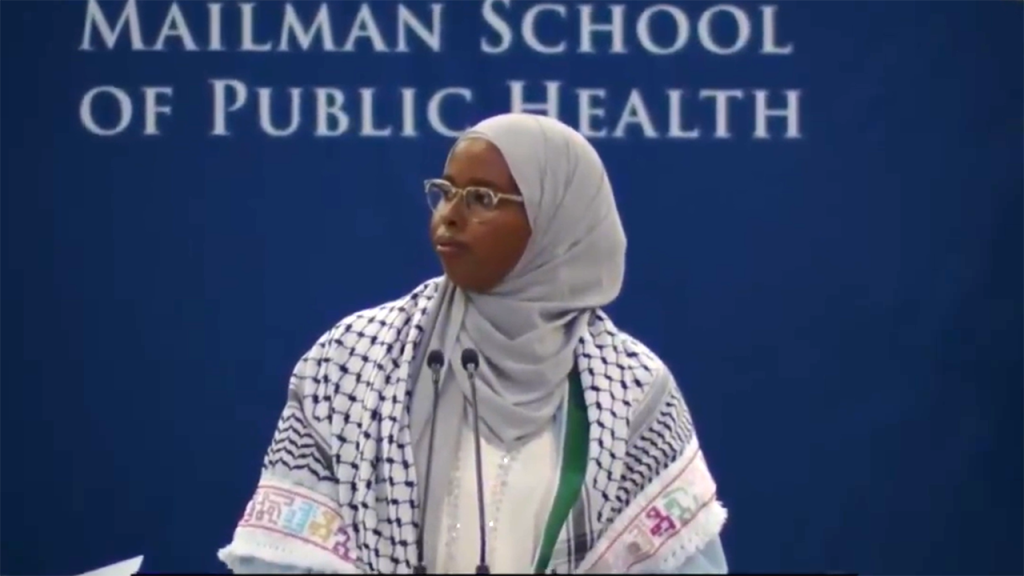A Columbia University student, Saham David Ahmed Ali, had her microphone repeatedly cut off during a commencement address where she criticized the university and Israel’s war in Gaza. The incident led to students in the crowd chanting “let her speak” as the microphone continued to malfunction. Despite the disruptions, Ali was able to complete her remarks, which focused on the concept of hope and the struggles of witnessing the ongoing conflict in Gaza. The university denied intentional interference with her speech, attributing the microphone cutting off to a technical glitch. This incident took place during a year of turmoil for the university, with anti-Israel demonstrations causing the cancellation of the main commencement ceremony.
Columbia University President Minouche Shafik had to cancel the traditional commencement ceremony due to ongoing anti-Israel protests on campus, instead writing an op-ed in the student newspaper congratulating the graduating class. She acknowledged the challenges that the past months have brought to the university community and emphasized the need for engagement with pressing global issues, including the conflict in the Middle East. Shafik addressed the difficulties of navigating polarization within the university community and expressed admiration for the class of 2024, who faced the impacts of COVID-19 and conflict throughout their university experience. She encouraged the graduates to be inspired by these challenges as they move forward into leadership roles in a world in need of their contributions.
The disruption of Ali’s commencement address at Columbia University highlighted the tense atmosphere on campus surrounding the Israeli-Palestinian conflict. The incident occurred amid calls for President Shafik to resign, as the university faced unprecedented challenges in managing protests and maintaining a sense of community. The cancellation of the main commencement ceremony was a difficult decision, reflective of the broader tensions and complexities that the university was navigating during a tumultuous period. Despite these challenges, Shafik expressed confidence in the resilience and potential of the graduating class, noting that they had been shaped by significant events during their time at Columbia.
The anti-Israel sentiments expressed by Ali during her speech underscored the deeply held beliefs and emotions surrounding the conflict, particularly within academic institutions like Columbia University. The disruption of her remarks and subsequent support from fellow students reflected the broader divisions and debates that were taking place on campus, as well as in wider society. The incident served as a flashpoint for the ongoing discussions around free speech, diversity of opinions, and the responsibilities of universities in addressing controversial issues. It also highlighted the need for constructive dialogue and understanding among communities with differing perspectives on complex global conflicts.
Moving forward, Columbia University faced the challenge of reconciling diverse viewpoints and maintaining a sense of unity and respect within its community. The cancellation of the traditional commencement ceremony and the disruptions during Ali’s speech were emblematic of the broader tensions and divisions that needed to be addressed and navigated on campus. President Shafik’s words of encouragement and support for the graduating class signaled a commitment to fostering a culture of resilience, understanding, and engagement with pressing global issues. The incident served as a reminder of the complexities and responsibilities that come with addressing controversial topics in academic settings, and the importance of upholding principles of free speech and dialogue, even in the face of disagreement.


